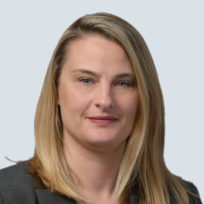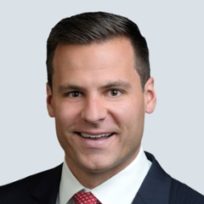All human services organizations that provide inpatient care face the risk of patients with a cognitive impairment or developmental disability leaving a supervised environment without proper authorization or supervision. Known as “elopement,” this situation can be prevalent in nursing homes, assisted living facilities or special care units for individuals with conditions like Alzheimer’s disease, dementia or autism.
Research shows that in cases involving elderly patients, if the resident is not located within the first 24 hours there is roughly a 25 percent chance they will not survive. But elopement risk is not limited to elderly patients. While the circumstances surrounding young people and children eloping from inpatient facilities may differ, the consequences can also result in severe injury or death. Faced with this daunting reality, it is incumbent upon care facilities to ensure the wellbeing of patients – and protect themselves from related liability – by preventing elopement.
The right human services broker can help facilities mitigate elopement risk in a number of ways, including:
1. Comprehensive risk assessment: A thorough evaluation of current protocols, elopement incidents, staff training and facility technology can help you find ways to identify which patients may be at greatest risk, where there may be safety gaps and opportunities for risk reduction.
2. Policy and procedure improvement: After the initial risk assessment, knowledgeable brokers can recommend strategic policy and procedure improvements, such as more robust chain of custody communications, employee and vendor background checks, visitor access changes and emergency response protocols.
3. Technology improvements: Your broker can introduce and help the organization source and adopt services and state-of-the-art technologies, such as updated surveillance systems and tracking devices, that have been proven to reduce elopement.
4. Training and Education: Your broker can provide guidance to help you develop a sustainable and repeatable staff and caregiver training program to help ensure the improved safety procedures, protocols and technologies are consistently communicated and applied.
5. Provider networking: Facilities can benefit from the knowledge gained through your broker’s relationships with other providers and the opportunity to network with other organizations that have been successful in reducing elopement incidents.
At Conner Strong & Buckelew, our brokers serve as a valuable resource for service providers in the human services industry. When it comes to elopement, human services organizations must do everything they can to limit these incidents and keep their patients and participants safe. Our leading team of professionals can help these organizations implement effective strategies to prevent these incidents. In the event that elopement does occur, our claims advocacy department will review claims, assist in all claim issues and recoveries and advocate with our carrier partners on your behalf.
For more information on how our team can help, please reach out to your Conner Strong & Buckelew representative, call us at 1-877-861-3220 or email [email protected].

Lisa Vanore
Partner, Managing National Claim Advocacy & Consulting Leader

Alexander Buzbee
Vice President, Business Development Executive